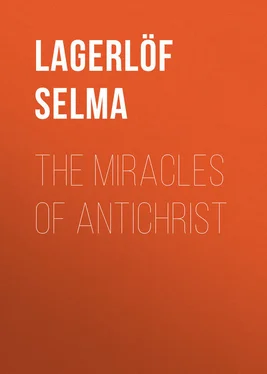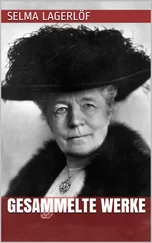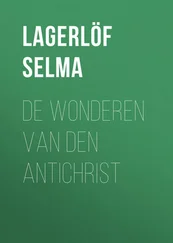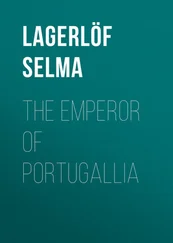Selma Lagerlöf - The Miracles of Antichrist
Здесь есть возможность читать онлайн «Selma Lagerlöf - The Miracles of Antichrist» — ознакомительный отрывок электронной книги совершенно бесплатно, а после прочтения отрывка купить полную версию. В некоторых случаях можно слушать аудио, скачать через торрент в формате fb2 и присутствует краткое содержание. Жанр: foreign_antique, foreign_prose, на английском языке. Описание произведения, (предисловие) а так же отзывы посетителей доступны на портале библиотеки ЛибКат.
- Название:The Miracles of Antichrist
- Автор:
- Жанр:
- Год:неизвестен
- ISBN:нет данных
- Рейтинг книги:4 / 5. Голосов: 1
-
Избранное:Добавить в избранное
- Отзывы:
-
Ваша оценка:
- 80
- 1
- 2
- 3
- 4
- 5
The Miracles of Antichrist: краткое содержание, описание и аннотация
Предлагаем к чтению аннотацию, описание, краткое содержание или предисловие (зависит от того, что написал сам автор книги «The Miracles of Antichrist»). Если вы не нашли необходимую информацию о книге — напишите в комментариях, мы постараемся отыскать её.
The Miracles of Antichrist — читать онлайн ознакомительный отрывок
Ниже представлен текст книги, разбитый по страницам. Система сохранения места последней прочитанной страницы, позволяет с удобством читать онлайн бесплатно книгу «The Miracles of Antichrist», без необходимости каждый раз заново искать на чём Вы остановились. Поставьте закладку, и сможете в любой момент перейти на страницу, на которой закончили чтение.
Интервал:
Закладка:
One day Donna Micaela was standing on her balcony waving her hand to her father, who rode away on a small, dark-brown pony, when Don Ferrante came up from the shop to speak to her. And what Don Ferrante wished to say was that he had succeeded in getting her father admitted to “The Brotherhood of the Holy Heart” in Catania.
But although Don Ferrante spoke very distinctly, Donna Micaela seemed not to understand him at all.
He had to repeat to her that he had been in Catania the day before, and that he had succeeded in getting Cavaliere Palmeri into a brotherhood. He was to enter it in a month.
She only asked: “What does that mean? What does that mean?”
“Oh,” said Don Ferrante, “can I not have wearied of buying your father expensive wines from the mainland, and may I not sometimes wish to ride Domenico?”
When he had said that, he wished to go. There was nothing more to say.
“But tell me first what kind of a brotherhood it is,” she said. – “What it is! A lot of old men live there.” – “Poor old men?” – “Oh, well, not so rich.” – “They do not have a room to themselves, I suppose?” – “No, but very big dormitories.” – “And they eat from tin basins on a table without a cloth?” – “No, they must be china.” – “But without a table-cloth?” – “Lord, if the table is clean!”
He added, to silence her: “Very good people live there. If you like to know it, it was not without hesitation they would receive Cavaliere Palmeri.”
Thereupon Don Ferrante went. His wife was in despair, but also very angry. She thought that he had divested himself of rank and class and become only a plain shop-keeper.
She said aloud, although no one heard her, that the summer palace was only a big, ugly old house, and Diamante a poor and miserable town.
Naturally, she would not allow her father to leave her. Don Ferrante would see.
When they had eaten their dinner Don Ferrante wished to go to the Café Europa and play dominoes, and he looked about for his hat. Donna Micaela took his hat and followed him out to the gallery that ran round the court-yard. When they were far enough from the dining-room for her father not to be able to hear them, she said passionately: —
“Have you anything against my father?” – “He is too expensive.” – “But you are rich.” – “Who has given you such an idea? Do you not see how I am struggling?” – “Save in some other way.” – “I shall save in other ways. Giannita has had presents enough.” – “No, economize on something for me.” – “You! you are my wife; you shall have it as you have it.”
She stood silent a moment. She was thinking what she could say to frighten him.
“If I am now your wife, do you know why it is?” – “Oh yes.” – “Do you also know what the priest promised me?” – “That is his affair, but I do what I can.” – “You have heard, perhaps, that I broke with all my friends in Catania when I heard that my father had sought help from them and had not got it.” – “I know it.” – “And that I came here to Diamante that he might escape from seeing them and being ashamed?” – “They will not be coming to the brotherhood.” – “When you know all this, are you not afraid to do anything against my father?” – “Afraid? I am not afraid of my wife.”
“Have I not made you happy?” she asked. – “Yes, of course,” he answered indifferently. – “Have you not enjoyed singing to me? Have you not liked me to have considered you the most generous man in Sicily? Have you not been glad that I was happy in the old palace? Why should it all come to an end?”
He laid his hand on her shoulder and warned her. “Remember that you are not married to a fine gentleman from the Via Etnea!” – “Oh, no!” – “Up here on the mountain the ways are different. Here wives obey their husbands. And we do not care for fair words. But if we want them we know how to get them.”
She was frightened when he spoke so. In a moment she was on her knees before him. It was dark, but enough light came from the other rooms for him to see her eyes. In burning prayer, glorious as stars, they were fixed on him.
“Be merciful! You do not know how much I love him!” Don Ferrante laughed. “You ought to have begun with that. Now you have made me angry.” She still knelt and looked up at him. “It is well,” he said, “for you hereafter to know how you shall behave.” Still she knelt. Then he asked: “Shall I tell him, or will you?”
Donna Micaela was ashamed that she had humbled herself. She rose and answered imperiously: “I shall tell him, but not till the last day. And you shall not let him notice anything.”
“No, I shall not,” he said, and mimicked her. “The less talk about it, the better for me.”
But when he was gone Donna Micaela laughed at Don Ferrante for believing that he could do what he liked with her father. She knew some one who would help her.
In the Cathedral at Diamante there is a miracle-working image of the Madonna, and this is its story.
Long, long ago a holy hermit lived in a cave on Monte Chiaro. And this hermit dreamed one night that in the harbor of Catania lay a ship loaded with images of the saints, and among these there was one so holy that Englishmen, who are richer than anybody else, would have paid its weight in gold for it. As soon as the hermit awoke from this dream he started for Catania. In the harbor lay a ship loaded with images of the saints, and among the images was one of the holy Madonna that was more holy than all the others. The hermit begged the captain not to carry that image away from Sicily, but to give it to him. But the captain refused. “I shall take it to England,” he said, “and the Englishmen will pay its weight in gold.” The hermit renewed his petitions. At last the captain had his men drive him on shore, and hoisted his sail to depart.
It looked as if the holy image was to be lost to Sicily; but the hermit knelt down on one of the lava blocks on the shore and prayed to God that it might not be. And what happened? The ship could not go. The anchor was up, the sail hoisted, and the wind fresh; but for three long days the ship lay as motionless as if it had been a rock. On the third day the captain took the Madonna image and threw it to the hermit, who still lay on the shore. And immediately the ship glided out of the harbor. The hermit carried the image to Monte Chiaro, and it is still in Diamante, where it has a chapel and an altar in the Cathedral.
Donna Micaela was now going to this Madonna to pray for her father.
She sought out the Madonna’s chapel, which was built in a dark corner of the Cathedral. The walls were covered with votive offerings, with silver hearts and pictures that had been given by all those who had been helped by the Madonna of Diamante.
The image was hewn in black marble, and when Donna Micaela saw it standing in its niche, high and dark, and almost hidden by a golden railing, it seemed to her that its face was beautiful, and that it shone with mildness. And her heart was filled with hope.
Here was the powerful queen of heaven; here was the good Mother Mary; here was the afflicted mother who understood every sorrow; here was one who would not allow her father to be taken from her.
Here she would find help. She would need only to fall on her knees and tell her trouble, to have the black Madonna come to her assistance.
While she prayed she felt certain that Don Ferrante was even at that moment changing his mind. When she came home he would come to meet her and say to her that she might keep her father.
It was a morning three weeks later.
Donna Micaela came out of the summer palace to go to early mass; but before she set out to the church, she went into Donna Elisa’s shop to buy a wax candle. It was so early that she had been afraid that the shop would not be open; but it was, and she was glad to be able to take a gift with her to the black Madonna.
Читать дальшеИнтервал:
Закладка:
Похожие книги на «The Miracles of Antichrist»
Представляем Вашему вниманию похожие книги на «The Miracles of Antichrist» списком для выбора. Мы отобрали схожую по названию и смыслу литературу в надежде предоставить читателям больше вариантов отыскать новые, интересные, ещё непрочитанные произведения.
Обсуждение, отзывы о книге «The Miracles of Antichrist» и просто собственные мнения читателей. Оставьте ваши комментарии, напишите, что Вы думаете о произведении, его смысле или главных героях. Укажите что конкретно понравилось, а что нет, и почему Вы так считаете.












